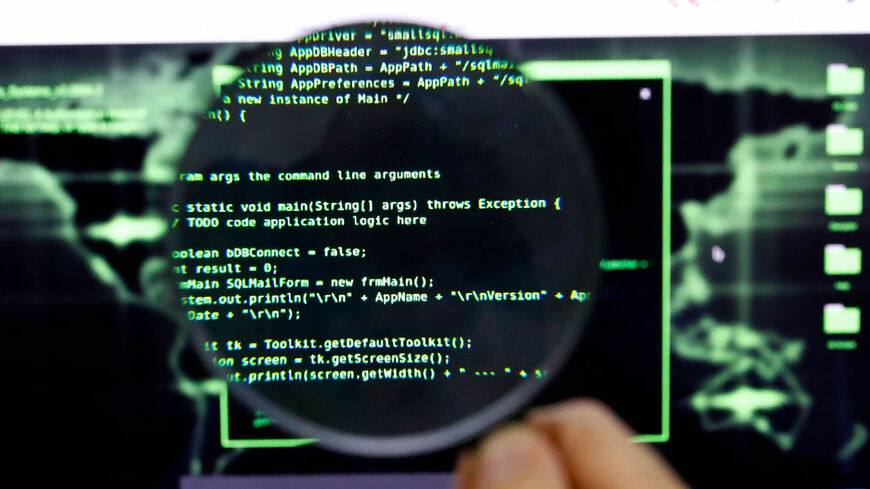With just two weeks before the Nov. 1 elections, polls indicate a tie between the right-wing and religious bloc of parties led by former Prime Minister Benjamin Netanyahu and the centrist and left-wing bloc led by caretaker Prime Minister Yair Lapid.
A few thousand voters, perhaps tens of thousands, will determine the winner and the fate of Israeli democracy. Declarations by several Netanyahu associates have left little room for doubt over his intentions, if he achieves even a slim Knesset majority of 61 seats (out of 120), a result that eluded him in the four previous elections held since April 2019. Netanyahu will have little compunction about instituting a legal-constitutional upheaval reshaping the country’s regime and burying his criminal trial on bribery charges.
This precarious situation (of a possible tie, again) gives rise to growing concerns of external interference or domestic manipulation designed to tip the scales in either direction. A previous article reported that Israel’s Shin Bet security service had reached out to its Russian counterpart in order to forestall intervention in the elections. The appeal was made by Shin Bet Director Ronen Bar under instructions from Lapid.
Russia has a known record of cyberintervention in foreign elections, but is not the only suspect. Israel is engaged in a powerful cyberwar with Iran, and is also eyeing potential interference from that direction. On the eve of the April 2019 elections, then-Shin Bet Chief Nadav Argaman raised the specter of cyber meddling by a foreign power to sway the voting. Argaman sounded his warning at a closed-door Tel Aviv University conference, but while his leaked remarks did not mention the name of the suspected power, it was subsequently reported that he had been referring to Russia. His comments angered then-Prime Minister Netanyahu given Israel's delicate relationship with Moscow.
That relationship has been deteriorating in recent months with Israel’s slowly increasing support for Ukraine. Criticism of Russia’s conduct, especially by Lapid, has become increasingly harsh and public. Last week, a member of Lapid’s Cabinet — Minister for Diaspora Affairs Nachman Shai — went as far as advocating Israeli arms supplies to Ukraine. Moscow warned in response that such a move would result in a diplomatic crisis and could even lead to a severing of relations.
This is not a likely scenario at the moment, but Israeli experts are warning that these tensions could prompt Russian meddling in Israel’s democratic process.
Some two weeks ago, the Shin Bet held several exercises simulating such a radical scenario. As reported this week in Haaretz, the Institute for National Security Studies also conducted such a simulation. The results, as summed up by the think tank’s director — former Military Intelligence Director Maj. Gen. (Res.) Tamir Heyman — were troubling. Prospects of foreign interference were deemed to be high, while prospects of blocking them were assessed as low.
What's more, many experts have pointed out that neither Israel’s security services, nor its central elections commission, have sufficient legal tools to deal with such threats. While Israel is a leading world cyberpower, both in terms of its offensive and defensive capabilities, it is unclear whether it can authorize their use to block social media and monitor its contents, issues of prime sensitivity given the potential for infringement on the right to free speech, especially during an election campaign.
Potential cyber manipulation by a political party, through the use of bots, fake Facebook profiles, avatars and other tools is another factor that few dare mention out loud. Some politicians have reportedly used fake profiles to disseminate false information that serves them or their side and resonates with voters. Confronting such manipulation challenges the delicate balance between the right to free speech and the right to ensure the integrity of the democratic process.
“The current situation is as delicate and sensitive as it gets,” a senior political official told Al-Monitor on condition of anonymity. “This is a fifth election round and all indications point to it being crucial. Much is riding on the results and the sides are using all the tools at their disposal.”
The official added that while Israel is preoccupied with dramatic elections, “cyberwarfare with Iran continues, as does the global chaos in this field. There is little doubt that an attempt will be made to influence the election process, spread fake news or try to turn Israeli voters against each other. The question is not whether such an attempt will be made, but rather how to neutralize it without resorting to tough measures.”
Of far greater concern are prospects of election fraud claims once the results are in. Such concerns arose ahead of all four previous rounds, but were proven unfounded. While claims of fraud were made, especially on the part of the Netanyahu camp that failed to obtain a majority, they quickly died out.
Given the crucial nature of this voting round, would one of the candidates attempt a move reminiscent of the Jan. 6 storming of the Capitol? Rumors have been making their way through the Netanyahu camp alleging that Central Elections Commission Chair Justice Yitzhak Amit plans to fake the results in favor of the other side — after he ruled against an election run by Likud party candidate Amichai Chikli. (A decision overturned last week by the Supreme Court.) Could such innuendo turn into a significant development once the results are in? And if so, how can such claims be addressed? Stay tuned for Nov. 2.








